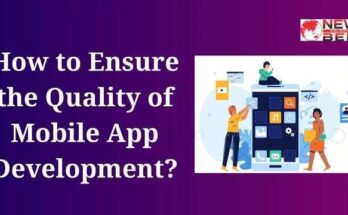In today’s digital age, a strong personal online presence is essential. It’s your digital footprint, your virtual identity, and the key to connecting with the world. Whether you’re an aspiring professional, an artist, an entrepreneur, or simply want to share your passions and expertise, your online presence can help you reach a global audience, build meaningful relationships, and showcase your unique personality and talents. From social media profiles to personal websites and professional networks, crafting a compelling online presence allows you to make a lasting impression and leave your mark in the digital realm.
Improve Your Personal Online Presence
Improving your personal online presence is crucial in today’s digital age, whether you’re looking to advance your career, build a personal brand, or connect with a broader audience. A strong online presence can open doors to new opportunities, enhance your credibility, and help you stand out in a crowded online landscape. In this article, we’ll explore various strategies to boost your online presence in 1000 words or less.
1. Define Your Goals
Before diving into the tactics, it’s essential to define your objectives. What do you hope to achieve with your online presence? Are you looking to showcase your expertise in a particular field, network with professionals, or promote your business? Having clear goals will guide your efforts and help you measure your progress.
Also, Read This: What is Digital Marketing in Hindi
2. Build a Professional Website or Blog
A professional website or blog is the cornerstone of your online presence. It’s a platform you control, where you can showcase your work, share your thoughts, and provide valuable content to your audience. Here’s what you should consider:
- Choose a domain name: Select a domain name that reflects your brand or identity.
- Optimize for mobile: Ensure your website is mobile-responsive for a seamless user experience.
- Create engaging content: Regularly update your website with high-quality, relevant content.
- Include an “About” page: Share your background, expertise, and achievements.
- Implement SEO: Optimize your content for search engines to improve visibility.
3. Be Active on Social Media
Social media platforms are powerful tools for expanding your online presence. Choose platforms that align with your goals and target audience. Here are some tips:
- Consistency is key: Maintain a regular posting schedule to keep your audience engaged.
- Interact with your audience: Respond to comments, messages, and engage in conversations.
- Share valuable content: Provide useful information, insights, and entertainment.
- Use visuals: Incorporate images, videos, and infographics to make your posts more appealing.
- Network: Connect with industry peers, thought leaders, and potential collaborators.
4. Personal Branding
Developing a strong personal brand is essential for a memorable online presence. Your personal brand is how you’re perceived by others. Consider these elements:
- Authenticity: Be yourself; authenticity fosters trust and connection.
- Consistency: Maintain a consistent voice, style, and message across all platforms.
- Unique selling proposition (USP): Identify what sets you apart from others in your field.
- Storytelling: Share personal stories and experiences to create a deeper connection.
- Professional imagery: Use high-quality images and visuals that align with your brand.
5. Online Reputation Management
Your online reputation is vital, as it can influence how others perceive you. Monitor your online presence and take steps to manage it effectively:
- Google yourself: Regularly search for your name to see what information is available.
- Address negative content: If you come across negative information or comments, consider addressing them professionally or seeking removal.
- Request testimonials and reviews: Encourage satisfied clients, colleagues, or customers to leave positive reviews and testimonials.
- Privacy settings: Adjust privacy settings on social media to control what information is public.
6. Content Creation
Creating valuable content is a surefire way to enhance your online presence. Whether it’s blog posts, videos, podcasts, or social media updates, content allows you to showcase your expertise and engage your audience. Here are some content creation tips:
- Know your audience: Understand your target audience’s needs and preferences.
- Quality over quantity: Prioritize creating high-quality content that provides value.
- Educational content: Share tips, tutorials, and insights related to your niche.
- Storytelling: Weave personal anecdotes into your content to make it more relatable.
- Consistency: Stick to a content schedule to keep your audience engaged.
7. Guest Posting and Collaborations
Collaborating with others and guest posting on reputable websites can help you expand your reach and credibility:
- Guest posting: Write articles for well-known blogs or publications in your field.
- Podcast appearances: Participate in podcasts or webinars related to your expertise.
- Collaborations: Partner with influencers or experts for joint content or projects.
- Interviews: Offer to be interviewed on podcasts, webinars, or YouTube channels.
8. Online Learning and Skill Development
Continuously improving your skills and knowledge is essential to stay relevant in your field. Share your learning journey online:
- Online courses: Enroll in relevant courses and share your progress and insights.
- Book reviews: Share your thoughts on books and resources that have influenced you.
- Webinars and workshops: Attend and share key takeaways from industry events.
9. Email Marketing
Email marketing is a direct and effective way to connect with your audience. Start building an email list:
- Newsletter: Send regular newsletters with valuable content and updates.
- Lead magnets: Offer free resources in exchange for email sign-ups.
- Segmentation: Segment your email list for more targeted communication.
10. Analyze and Adjust
Regularly analyze your online presence and adapt your strategies based on the data:
- Website analytics: Use tools like Google Analytics to track website traffic.
- Social media insights: Review metrics like engagement, followers, and reach.
- Email campaign performance: Monitor open rates, click-through rates, and conversions.
- Feedback: Collect feedback from your audience and use it to improve.
Read Also:- What is Chatgpt Step by Step
Conclusion
Improving your personal online presence is an ongoing process that requires dedication, authenticity, and strategic planning. By defining your goals, building a strong website, engaging on social media, developing a personal brand, managing your online reputation, creating valuable content, collaborating with others, continuously learning, using email marketing, and analyzing your efforts, you can enhance your online presence and achieve your objectives. Remember that consistency and authenticity are key to building a strong and memorable online presence that resonates with your audience.




